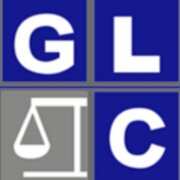Best Energy Regulatory Law Lawyers in Doha
Share your needs with us, get contacted by law firms.
Free. Takes 2 min.
List of the best lawyers in Doha, Qatar
About Energy Regulatory Law in Doha, Qatar
Energy Regulatory Law in Doha, Qatar governs the generation, transmission, distribution, and consumption of energy resources, including oil, gas, electricity, and renewable energy. With its abundant hydrocarbon reserves and strategic commitment to energy diversification, Qatar has established a comprehensive legal and regulatory framework to oversee the sector. Energy Regulatory Law ensures the safe, efficient, and sustainable exploitation of natural resources while protecting the interests of the nation, investors, and consumers. The regulations also support Qatar's vision for economic diversification and environmental stewardship in line with the Qatar National Vision 2030.
Why You May Need a Lawyer
There are several situations where individuals or businesses may require legal assistance in the field of Energy Regulatory Law in Doha, Qatar. These include obtaining licenses for energy projects, negotiating and drafting energy contracts, navigating compliance with environmental standards, resolving disputes with partners or government authorities, and understanding the implications of regulatory changes. Foreign investors and multinational companies often seek legal advice to ensure they adhere to local laws and avoid costly delays or penalties. A specialized lawyer can provide crucial support in navigating these complexities, protecting your legal interests, and facilitating smooth business operations in the energy sector.
Local Laws Overview
Key aspects of local laws relevant to Energy Regulatory Law in Doha, Qatar include:
- Licensing and Permitting: Energy-related activities such as exploration, production, and distribution require proper permits and licenses issued by government bodies, primarily the Ministry of Energy and Industry or related authorities.
- Foreign Ownership and Participation: While Qatar welcomes foreign investment, certain restrictions and requirements on ownership, partnership structures, and local content can apply, especially in strategic sectors like energy.
- Environmental Regulations: Stringent environmental standards apply to energy projects to mitigate impact and promote sustainable practices, in accordance with the Qatar Environmental Protection Law.
- Contractual Frameworks: The legal environment supports various contract models, including Production Sharing Agreements (PSAs), Service Agreements, and Joint Ventures, all of which are subject to local law and require regulatory approval.
- Dispute Resolution: Energy sector disputes may be addressed through local courts or arbitration forums, often as stipulated in contract agreements.
- Price Regulation and Tariffs: The state plays a significant role in determining prices and tariffs for energy services to ensure affordability and stability for consumers and producers.
Frequently Asked Questions
What is the main regulatory authority for the energy sector in Qatar?
The primary regulator is the Ministry of Energy and Industry, which oversees licensing, compliance, and enforcement of energy regulations. Other entities like Qatar Petroleum and the Qatar General Electricity and Water Corporation (Kahramaa) also play significant roles.
Can foreign companies invest in Qatar's energy sector?
Yes, but there may be restrictions. Foreign ownership typically requires local partnerships or joint ventures, and compliance with Qatar's investment and commercial laws is mandatory.
What are the licensing requirements for starting an energy project in Doha?
You must apply for permits and licenses from relevant authorities, which may include environmental impact assessments, technical qualifications, and approvals for specific activities.
How are energy contracts typically structured in Qatar?
Contracts can include Production Sharing Agreements, Service Agreements, and Joint Ventures. All contracts must comply with local laws and are subject to government approval.
Are there environmental regulations that apply to energy projects?
Yes, strict environmental laws regulate waste management, emissions, and resource usage to ensure sustainable development, requiring ongoing compliance and reporting.
How are energy tariffs set for consumers and businesses?
Energy tariffs are set by government authorities, aiming to balance affordability for consumers and fair returns for investors. These may be reviewed and adjusted periodically.
What dispute resolution options exist in the energy sector?
Disputes may be settled through negotiation, local courts, or arbitration, depending on the terms outlined in the contract between parties.
Can renewable energy projects be developed in Qatar?
Yes, Qatar promotes diversification into renewable energy, offering incentives and regulatory support for solar and other clean energy initiatives.
Is government approval required for mergers or acquisitions in the energy sector?
Yes, significant transactions such as mergers and acquisitions typically require government approval to ensure compliance with regulatory and strategic interests.
What penalties can result from non-compliance with energy regulations?
Penalties may include fines, suspension of licenses, contract termination, and even criminal liability in cases of severe violations such as environmental harm or operating without a license.
Additional Resources
For further information and support, you may refer to the following entities:
- Ministry of Energy and Industry: The central authority for energy regulation in Qatar.
- Qatar Petroleum: Manages and regulates oil and gas resources.
- Qatar General Electricity and Water Corporation (Kahramaa): Oversees electricity and water utilities.
- Qatar Financial Centre: Provides information for foreign investors, including licensing and compliance requirements.
- Qatari Environmental Authority: For guidance on environmental compliance and regulations.
Next Steps
If you require legal assistance in Energy Regulatory Law in Doha, Qatar, begin by identifying your specific needs, such as project licensing, contract negotiation, compliance audits, or dispute resolution. Gather all relevant documents and information related to your case. Seek a specialized law firm or lawyer with expertise in Qatari energy regulations, ideally with local experience and a proven track record in the energy sector. Arrange an initial consultation to discuss your goals and legal options. Remain proactive about compliance, keep updated on regulatory changes, and maintain open communication with your legal counsel for ongoing support.
Lawzana helps you find the best lawyers and law firms in Doha through a curated and pre-screened list of qualified legal professionals. Our platform offers rankings and detailed profiles of attorneys and law firms, allowing you to compare based on practice areas, including Energy Regulatory Law, experience, and client feedback.
Each profile includes a description of the firm's areas of practice, client reviews, team members and partners, year of establishment, spoken languages, office locations, contact information, social media presence, and any published articles or resources. Most firms on our platform speak English and are experienced in both local and international legal matters.
Get a quote from top-rated law firms in Doha, Qatar — quickly, securely, and without unnecessary hassle.
Disclaimer:
The information provided on this page is for general informational purposes only and does not constitute legal advice. While we strive to ensure the accuracy and relevance of the content, legal information may change over time, and interpretations of the law can vary. You should always consult with a qualified legal professional for advice specific to your situation.
We disclaim all liability for actions taken or not taken based on the content of this page. If you believe any information is incorrect or outdated, please contact us, and we will review and update it where appropriate.
















